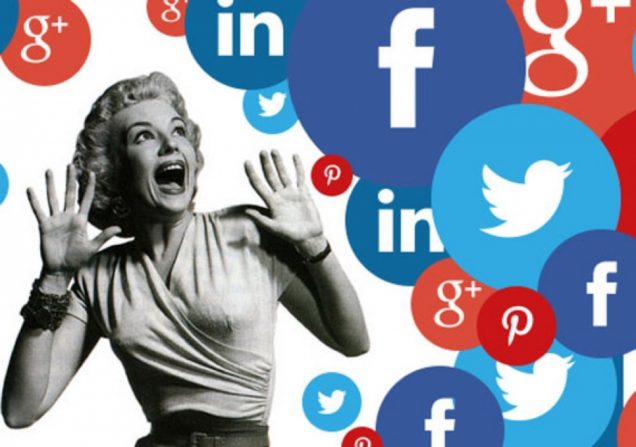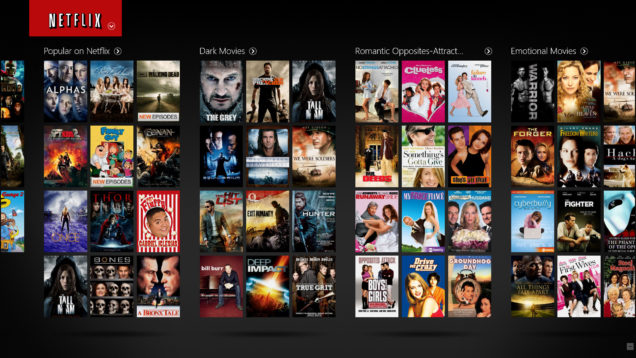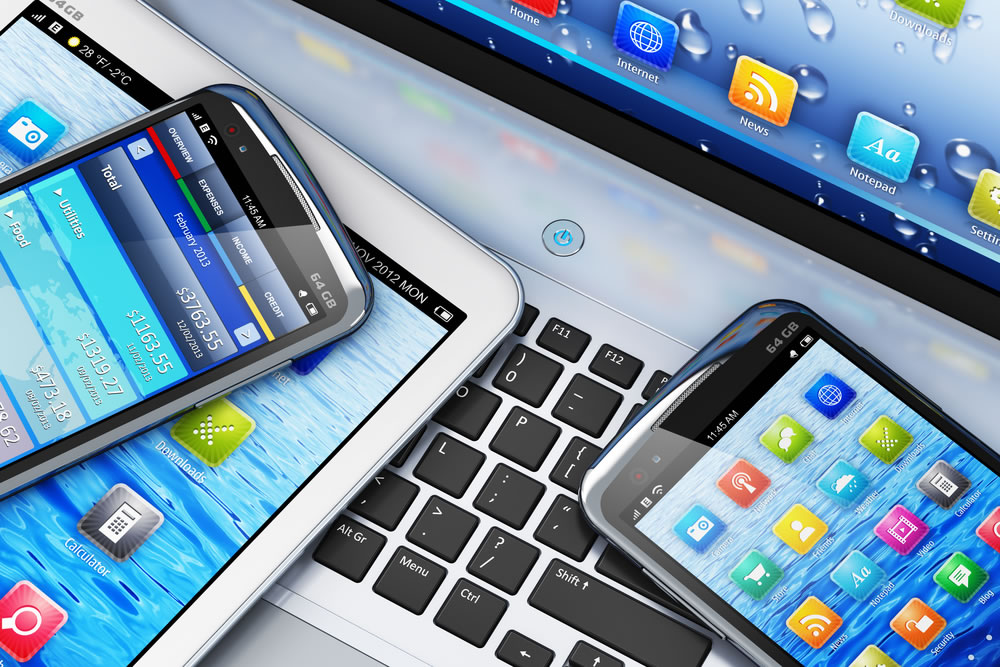Digital, as a word, seems to be ubiquitous in today’s life. From the media entertainment such as movies and music to the promotion of political campaign, we people can access to all these things through “bits” at anytime and anywhere (Negroponte, 1995). Admittedly, with the development of digital media, it’s more convenient for people to get information than ever before. Since the ancient time, it has been a dream for human beings to deliver the information efficiently and effectively. The Thousand Mile Eye and the Wind Accompanying Ear are two characters in an old Chinese story who can see things and hear whispers from far away, which shows that the aspiration of communication technology has last long in human history. Even today, we do not stop exploring the new communication technology. Now, the digital medium we have to transmit information has been increasingly abundant. Television, smartphone, tablet, laptop, smartwatch, and visual reality, we have never limited our imagination of communication.

We are overwhelmed by digital media.
However, on the other hand, we have also been overwhelmed by these digital media, which decrease our ability to receive information (Gomez, 2014). Have you eve noticed that your time is often meaninglessly consumed? With the progress of technology and society, we can no longer separate the digital media from both of our work and life. All kinds of digital media are occupying and consuming a lot of people’s time. For example, we have to use computer, phone, e-mail anytime and anywhere to communicate. After work, we watch movies and TV series on computers and television. Even on the bus or Metro, people are still looking down to their tablets and phones to consume media or checking social networks during their commute to work. Especially with the popularization of smartphone devices and WiFi connection technology, digital media is pervasively invading people’s lives and squeezing people’s time since they have access to media all the time.
As mentioned above, such phenomenon has led to the consequence that the digital media technology is not only changing our way to communicate, but also influencing our society in many ways. For example, new media platform changed the way of running presidential campaign. As mentioned in Neilson’s article (2015), 2004 was called the “Meetup Election” after Howard Dean’s spectacular primary campaign used the platform as part of its effort to mobilize volunteers and raise money; 2008 was called the “Facebook Election” and the “YouTube Election” as these tools grew in importance and particularly the Obama campaign used them; 2012, of course, was called the “Twitter Election” as that was the new tools of the season. New words and technologies come up every election year. Presidential candidates try as hard as they can to occupy the top search term of internet. It looks exciting, doesn’t it? Or, it feels fun, doesn’t it? The 2016 was such an unusual, unexpected, strange, weird and bizarre year of presidential election. It is more like a battle between Hillary Clinton and Donald Trump, or the traditional media and the new media. One is saying words which are politically correct, the other is talking unabashedly about the current situation of the country. In the end, the result shows that people have more support in the latter one who won the battle on the online digital media (Sullivan, 2017). Thus, we can’t help asking ourselves, does the content still matter?

Netflix’s original programming has received 91 Emmy nominations.
From my perspective, I think the content still does matter. Although the medium platform is changing rapidly nowadays, the content is still the key to the success. Take the Netflix as an example, as an online video platform, it is often regarded as a game changer in film and TV industry since its streaming service has attracted millions of subscribers. According to the research, more young people are enjoying binge viewing on the Netflix (Matrix, 2014). However, are the new business model or streaming technology the key elements to its success? Actually, most people have neglected the fact that it is Netflix’s original content that help it to attract audience. It’s not hard to find proof of the quality and popularity of Netflix’s content in the tact that Netflix’s original programming has received 91 Emmy nominations. What’ s more, about 27 of Netflix’s original programs have been nominated for the Emmy awards, making the its streaming service with the most nominated series of any network. According to recent news, Netflix still expects to invest six billion dollars on content this year, which shows the importance of the content quality. New media technology may draw people’s attention, but it is the content that keeps people stay. Meanwhile, it also reminds me of the release of Apple Watch. At first, everyone was exciting about this wearable device, thinking it represents the future of technology. However, though the technology of wearability sounds exciting, Apple hasn’t brought much exciting content on the watch, which makes the Apple watch more like an accessory to the iPhone.
Thus, NEW TECHNOLOGY MAY ATTRACT MORE, BUT GOOD CONTENT RETAINS MORE. Personally, I may not totally agree with Matthew Gentzkow’s (2006) analysis that television has generally been bad from socio-politically perspective. New media technology has its advantages in spreading information, no matter it is political content or not. The most important thing is that the content which the technology is spreading should take the responsibility to guide people to contribute more to our society. Thus, in my opinion, as long as the content is good, technology will also have a benefit to us.
By Zhounan Yang, BU Emerging Media Studies Master’s Student, yzhounan@bu.edu
References
Gentzkow, M. (2006). Television and voter turnout. The Quarterly Journal of Economics, 121(3), 931-972.
Gomez-Rodriguez, M., Gummadi, K. P., & Schoelkopf, B. (2014, March). Quantifying Information Overload in Social Media and Its Impact on Social Contagions. In ICWSM (pp. 170-179).
Matrix, S. (2014). The Netflix effect: Teens, binge watching, and on-demand digital media trends. Jeunesse: Young People, Texts, Cultures, 6(1), 119-138.
Negroponte, N. (1995). Bits and atoms. Wired, 3, 01.
Nielsen, K. R. (2015, March). No, this won’t be the “Meerkat Election”. Or the “Periscope Election”. It’s digital politics as usual. Retrieved December 04, 2017, from https://rasmuskleisnielsen.net/2015/03/31/no-this-wont-be-the-meerkat-election-or-the-periscope-election/
Sullivan, M. (2017, October). Hillary Clinton thinks the news media was unfair to her. She’s right. Retrieved December 04, 2017, from https://www.washingtonpost.com/lifestyle/style/hillary-clinton-thinks-the-news-media-was-unfair-to-her-shes-right/2017/10/08/da9807ba-a9d3-11e7-b3aa-c0e2e1d41e38_story.html?utm_term=.f4ec471332b2.
